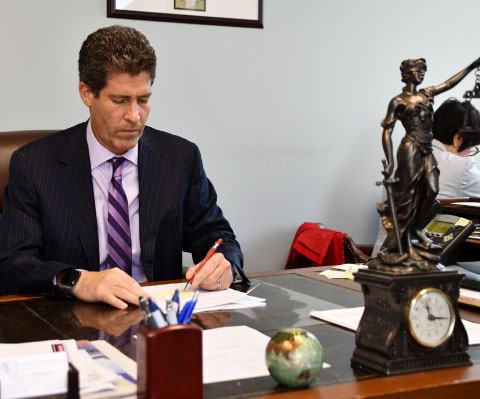How Can I Stay Safe Driving When Daylight Saving Time Comes?
March 4, 2022

Daylight saving time is just around the corner, giving everyone more time in the sunshine when the clocks spring forward. Although daylight saving time is known for darker mornings and the infamous lost hour of sleep, it may be surprising to learn that the time change increases the chances of getting into a car accident. In fact, researchers at Johns Hopkins found that the number of car accidents increases on the Monday and week following the time change.
Resetting our clocks to an hour ahead does more to our bodies than most would think. The lost hour disrupts our circadian rhythm, which is also referred to as our internal body clock. Our circadian rhythm is paramount to our daily cycle and sleep schedules; when it is off, even by one hour, we become drowsier and sleep deprived, affecting our actions until the rhythm readjusts.
Drowsiness and driving are a dangerous combination. The National Highway Traffic Safety Administration (NHTSA) found that drowsy driving causes more than 800 fatalities each year, and there are likely more than reported. It is because the lack of sleep reduces our reaction times, awareness, and ability to focus on driving safely. Some experts believe that drowsy driving is the equivalent of driving under the influence of alcohol; losing two hours of sleep in an eight-hour span is equal to drinking three beers.
Drowsy driving is responsible for over 13 percent of all car accidents, and that number is likely underestimated. The National Sleep Foundation surveyed adult American drivers and found that over half have driven drowsy at some point. One out of four drivers have themselves or have known someone to have fallen asleep behind the wheel. More studies have also shown that closing your eyes for a few seconds at 55 miles per hour is the equivalent of driving an entire football field blindfolded.
Daylight Saving Time Tips for Safer Driving
With the hustle of modern life, it seems common for people to forgo sleep to meet the needs of the day. Daylight saving time makes matters worse with the abrupt hour change. Here are some tips to stay safe on the road after this year’s switch to daylight saving time:
- Know the signs of drowsiness. It is a good idea to recognize the signs of drowsiness before getting behind the wheel. Things such as yawning or rubbing your eyes are clear indications of getting sleepy, as well as blinking more than usual. Also, according to the Centers for Disease Control and Prevention (CDC), other drowsy driving warning signs include daydreaming, trouble remembering the last few miles, and drifting into another lane or hitting rumble strips.
- Go to bed early. On the week leading up to the time change, try going to bed early or implement the hour change every night before you have to change the clocks. This will help get your circadian rhythm in the correct cycle for when the change does happen, and that hour change will not affect you as much. Also, still try to get seven to nine hours of sleep each night.
- Do not rush. Allow yourself enough time to go to work so you do not feel as rushed. People lose focus when they are pressed for time, and if you are feeling tired, it could increase your chances of getting into an accident even more.
- Drive defensively. Driving defensively is a method in which you allow enough space between yourself and others, ultimately giving yourself plenty of time to react to a drowsy driver. Reduce your speed and be as cautious as possible, especially on highways and long rural roads, where people tend to lose focus more easily. Also, assume that other drivers have the right of way or that they cannot see you, because you never know who is out driving adversely because of the time change.
- Adjust for darker mornings. When daylight saving time starts, be aware that your morning commute will likely begin when it is darker out. Obviously, it will progress to lighter mornings as the year goes on but prepare your body accordingly to the dark morning. The same could be said for the evening, as the sun is likely going down during your end of day commute. Always drive with your headlights on and be aware that your commute may look differently because of the sunlight, which could be blinding at times.
- Keep up with car maintenance. The time change is a good day on the calendar to make sure your car is getting the maintenance it needs. Have your wipers replaced, oil changed, and have the exterior lights working properly for the darker mornings. Also, it may be a good idea to have your tires, brakes, and battery checked after driving through the ice and snow of the winter months.
- Eliminate distractions. Distracted driving is one of the main causes of car accidents. Lose the distractions and the cell phone, and maintain focus on the task at hand, getting to your destination safely.
- Check your health. Always get checked up by your doctor to make sure you are not suffering from any health conditions that can cause drowsiness, such as sleep apnea. Be aware of any prescription medications you are taking as well, as many have side effects that cause drowsiness.
- Take action if you are drowsy. If you do get drowsy while driving, find a safe area to pull over and try to get a 20-minute rest. The NHTSA says that one or two cups of coffee can help recharge you but will only improve your stamina temporarily. You can also get out of the car and stretch your legs, and perhaps go for a walk, as doing so will get your heart rate up and gives your mind a much-needed break.
Finally, keep in mind that other drivers and pedestrians may not prepare themselves for the time shift as well as you, so be cautious and drive safely, particularly the week following the time change. Drowsy driving is one of the biggest factors in car accidents, so prepare yourself as best as possible.
Philadelphia Car Accident Lawyers at Nerenberg Law Associates, P.C., Help Clients Injured by Drowsy Drivers
No one likes to lose an hour of sleep, but you can protect yourself from daylight saving time’s adverse effects, especially when driving. If you or a loved one has been injured by a negligent or drowsy driver, reach out to the Philadelphia car accident lawyers at Nerenberg Law Associates, P.C. Our legal team will investigate the cause of the accident and help you receive the compensation for which you are entitled. Call us today at 215-569-9100 or contact us online for a free consultation. Located in Philadelphia, we serve clients throughout Pennsylvania and New Jersey.

